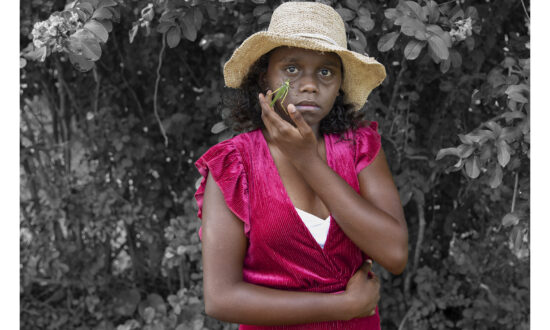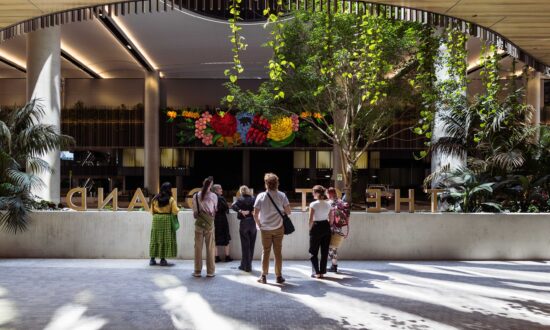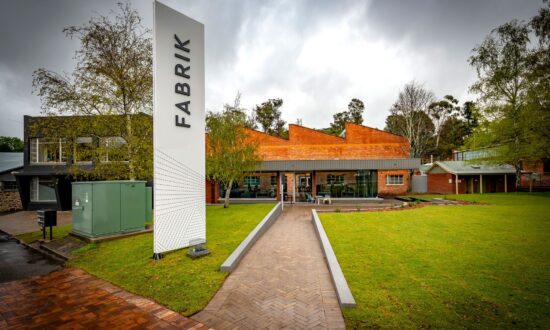There are two big, white, conspicuously blank walls in Sera Waters’ corner of Central Studios in Kent Town. It’s a rare thing to see in any artist’s space, but in Waters’ case it’s not a sign of inactivity – until very recently they were festooned with her contribution to Free/State, the 2022 Adelaide Biennial of Australian Art.
“It’s five sails, they covered this entire wall – that’s why it’s completely empty. And then ropes and brass fittings, a net, sand, all sorts.”
With the sails now boxed and bundled up in a corner awaiting collection by the Art Gallery of South Australia’s install team, Waters shows me diagrams of a work that stitches together ideas about land and people, and the past and present.
Like much of her practice, the sails draw on traditional techniques and complex questions about the bygone eras with which they are intertwined. In the case of the sails, this has a very direct relevance: “My earliest ancestors here in Australia [arrived] in 1838, from Liverpool, [having] come down from Scotland. They were sailmakers – I’ve been trying to go back to those older traditions.”
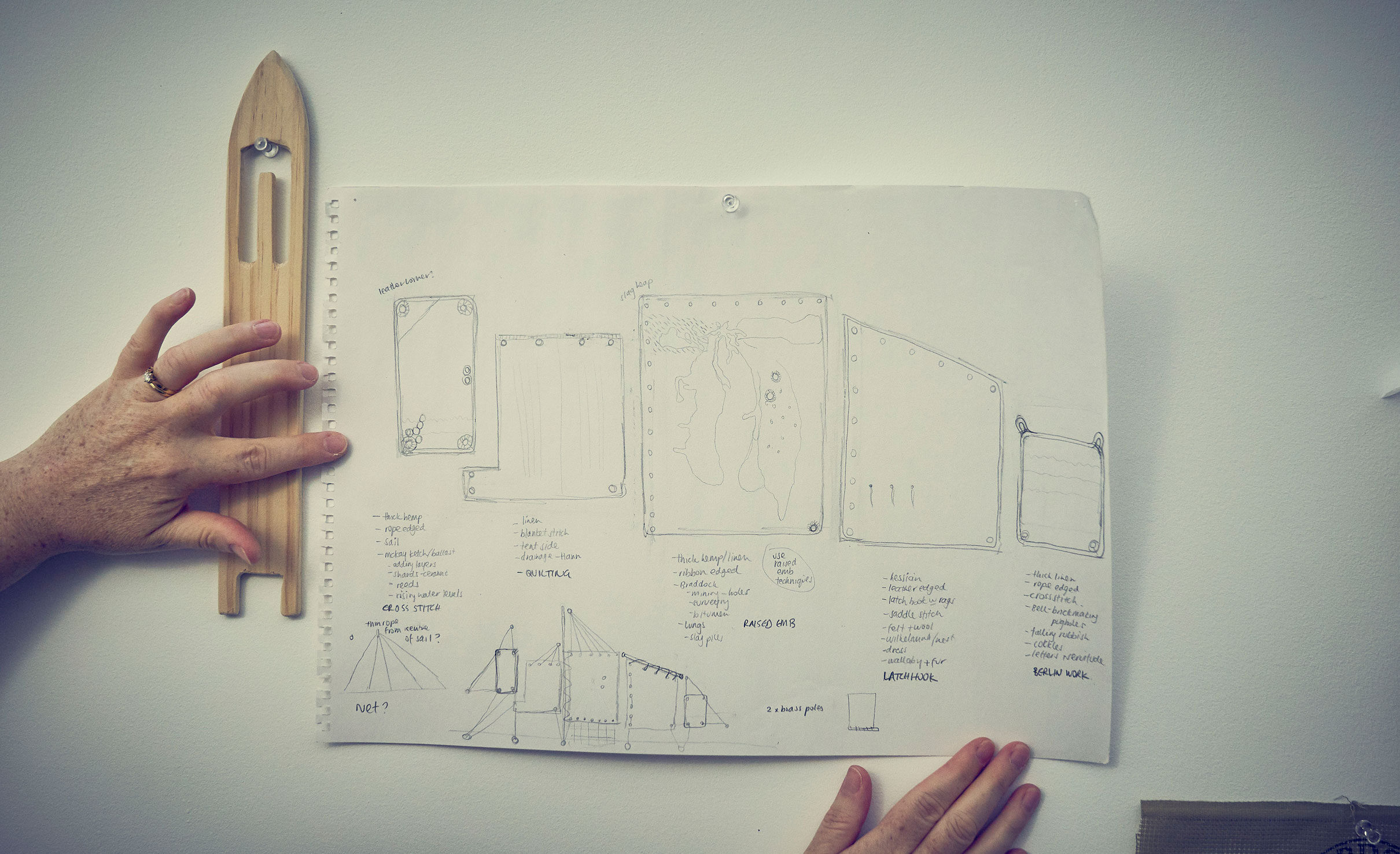
Diagrams of Sera Waters’ work for the 2022 Adelaide Biennial. Photo: Aubrey Jonsson
While the land itself is more easily understood as a site of invasion and dispossession around this continent, Waters’ ancestral trade reminded her that even the seemingly innocuous act of stitching and crafting sails played a key role in driving colonialism by sea.
“Those [ships] were vehicles for colonisation; they delivered goods all around the coastline, to sell to bring back grain, and also building materials. It’s looking at that accountability, and taking responsibility for those actions of the past and how they have completely reshaped the landscape.”
The result is an intriguing mix of embroidery, patchwork and found materials.
“I want them all to be read in multiple ways,” she explains. “They’re topographies but also portraits; there are portraits of ancestors in all of them, and then there’s this delving into the land.
“Together, the sails are stories of how land has been used since colonisation, drawing on my own family settler history, and looking at the accumulated layers of damage that have happened. But one is also almost like a white flag – it offers hope for us recognising that and moving differently into the future.”
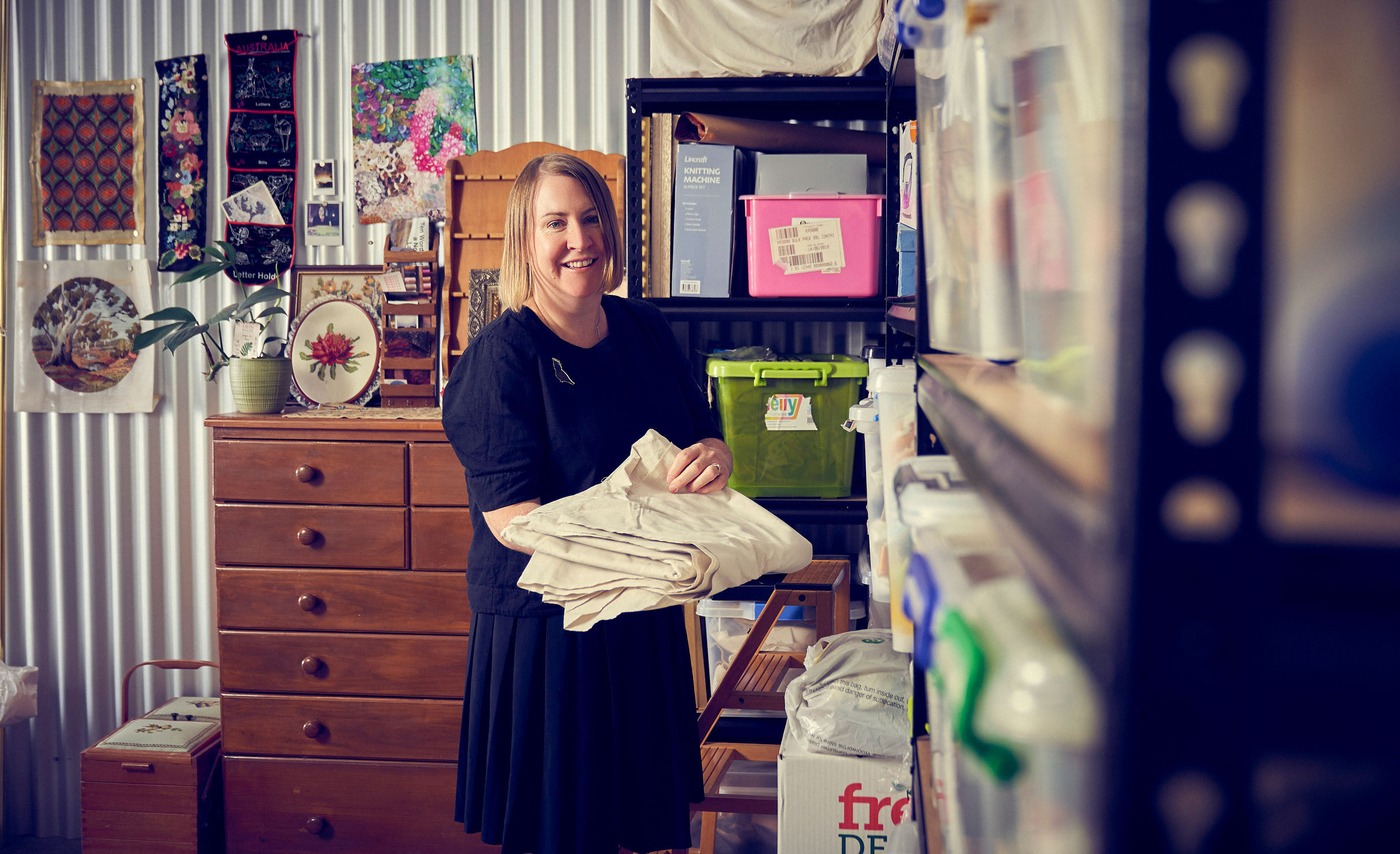
Waters in her workspace at Central Studios in Kent Town. Photo: Aubrey Jonsson
While Waters’ interest in her ancestry was inspired by her late mother, who spent 40 years charting their various family trees, the time-honoured tools and skills she uses (not to mention the mountain of sewing supplies and materials stacked around her studio) skipped a generation.
“My mum was someone who rejected those expectations. She hated baking and she hated being expected to do stitching. Whereas I’m that generation that didn’t get taught it at school and kind of lament that – I wanted to learn it.
“But before Mum, there were of course grandparents and great-grandparents, particularly women, who were expected to do that kind of work. So when I am embroidering, I think a lot about their hands, and maybe we’re making the same movements or have calluses in the same spot – that it does tap into a very long lineage, thousands of years.”
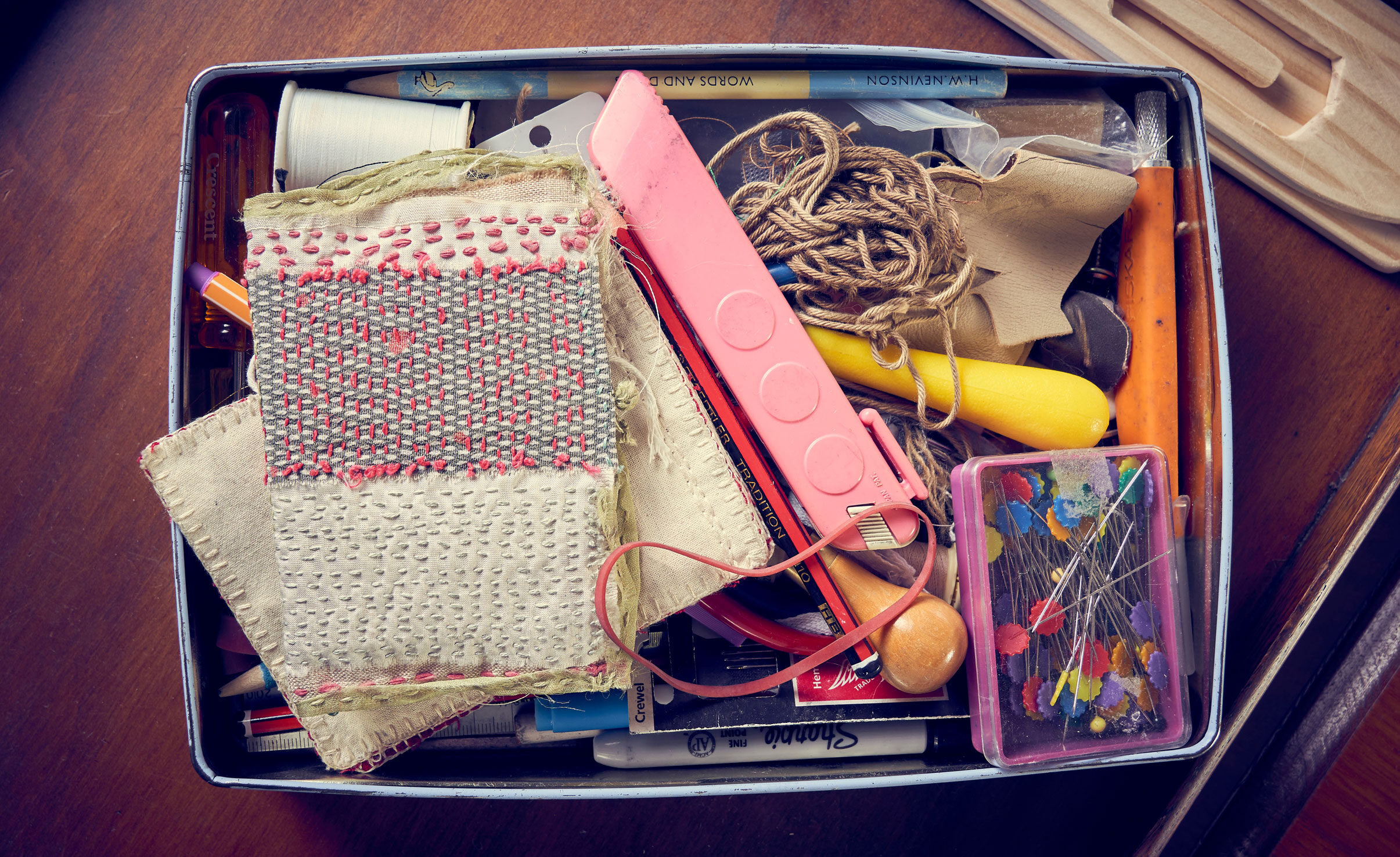
Tools of the artist’s trade. Photo: Aubrey Jonsson
Looking beyond Free/State, Waters is about to embark on a new body of work as part of a Guildhouse Fellowship, to be exhibited at the Art Gallery of South Australia in November. Dubbed Future Traditions, this work will also tap into how these processes have been a source of resilience, narrative, memory and comfort across the ages.
“I think that’s my big reckoning with textile traditions,” she says. “That often they’re seen in this contemporary age as outdated, or there are ways of outsourcing them. Are they needed? Do we need to mend? But all those traditions have come from thousands of years of people trying to make their lives more comfortable, or functional, or survivable when it comes to clothing or protection.
“Those are traditions that have stood the test of time for good reason – it’s only the last 100 years that we’ve let some of them go.”

A contemporary take on a cross-stitch sampler. Photo: Aubrey Jonsson
One small piece she’s currently working on is a contemporary take on the once-ubiquitous cross-stitch sampler. “It’s about things that help us survive in this day and age,” she says, pointing out a small embroidered Wordle score in one corner. “That’s my daily pleasures.”
A moment later, Waters’ phone rings. It’s the AGSA team ready to whisk away the sails to their next port. Having started the project in May, before she’d even moved to this space, the sense of relief is palpable as she bids them on their way. “It’s been a long time coming.”
Then, it’s time to fill up those walls again.
The 2022 Adelaide Biennial of Australian Art: Free/State opens at the Art Gallery of South Australia on March 4.
Sera Waters was the 2020 recipient of the Guildhouse Fellowship, which is supported by the James & Diana Ramsay Foundation and presented in partnership with the AGSA. Applications for the 2022 fellowship open on March 1.
In the Studio is a regular series presented by InReview in partnership with not-for-profit organisation Guildhouse. The series shares interesting stories about South Australian visual artists, craftspeople and designers, offering insight into their artistic practices and a behind-the-scenes look at their studios or work spaces. Read our previous stories here.
Support local arts journalism
Your support will help us continue the important work of InReview in publishing free professional journalism that celebrates, interrogates and amplifies arts and culture in South Australia.
Donate Here

